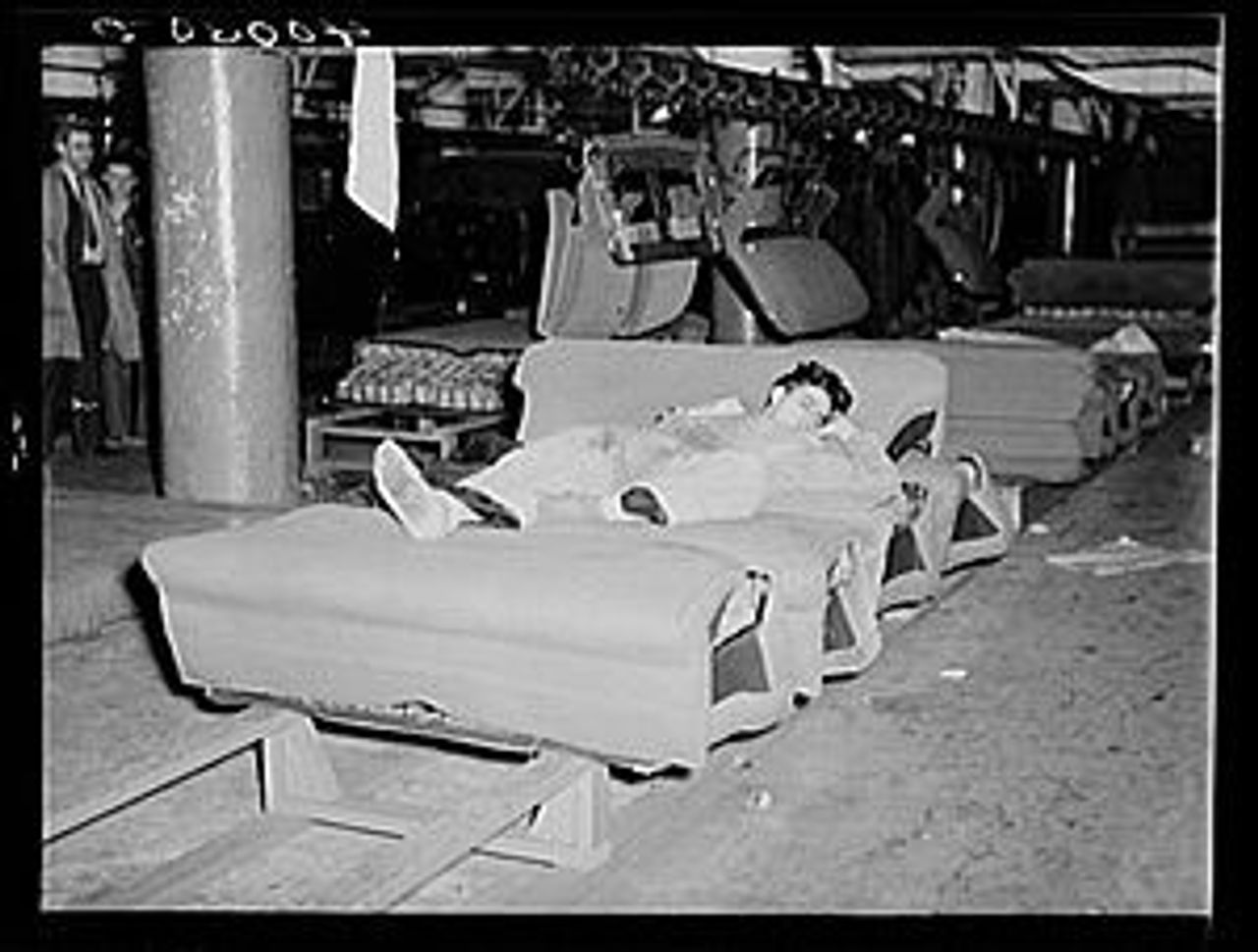20 February 2012
This Week in History provides brief synopses of important historical events whose anniversaries fall this week.
25 years ago: Brazil debt moratorium rocks world finance
 José Sarney
José Sarney
On February 20, 1987 Brazil’s President José Sarney announced a moratorium on payment of the country’s debt to the International Monetary Fund (IMF). The action, in effect, a default, shook the world financial system. Bank stocks fell on Wall Street after the announcements; among Brazil’s biggest creditors were Citicorp, Bank of America and Chase Manhattan.
Sarney made the announcement in a 15-minute televised speech. He indicated that his regime intended to resume the payments at some future date, while explicitly warning the international bankers that the type of austerity measures they were demanding would drive Brazil to the brink of social revolution.
It was estimated that Latin America and Africa collectively had outstanding debt of $973 billion. Governments on both continents had been soliciting some form of debt relief for at least the previous two years.
With a total foreign debt of $110 billion and interest payments of over $8.3 billion annually, Brazil was Latin America’s largest debtor nation. Sarney’s attempt to control inflation, called the “Cruzado Plan”—a system of price and wage freezes, modelled on similar plans in Argentina and Israel—failed because of resistance in the working class.
Brazil’s announcement was followed by a statement February 22 from the politically unstable Cordero regime in Ecuador—Latin America’s eighth largest debtor—that it would postpone interest payments until June, after failing to make its $38 million January payment. Additionally, on the same day as Sarney’s speech, Argentina—with a foreign debt of $53 billion—announced that it might suspend payments if it did not get new loans. Mexico, Chile and Venezuela were at the same time renegotiating their terms with foreign banks.
50 years ago: John Glenn becomes first American to orbit Earth
 Photo taken by Glenn from space
Photo taken by Glenn from space
On February 20, 1962 NASA astronaut John Glenn became the first American to orbit the earth when his satellite, Friendship 7 of the Mercury-Atlas 6 mission, passed three times around the earth in a span of 4 hours and 55 minutes.
The satellite was blasted off from an Atlas LV-3B launch vehicle in Cape Canaveral, Florida. After a month of delays due to minor design and mechanical errors, the flight proceeded with minimal problems, and Glenn landed in good health in the waters of the Caribbean about 40 miles from the expected location.
Glenn was promoted as a national hero by the Kennedy administration and the US media (which eventually took him to the US Senate). His achievement, very much bound up with the Cold War, came after a breakneck campaign to catch up with the Soviet Union’s space program, which had sent cosmonaut Yuri Gagarin into orbit nearly a year earlier. (see: Fifty years since the first manned spaceflight)
75 years ago: Sit-down strike wave spreads
 Flint sit-down striker
Flint sit-down striker
Two weeks after the Flint, Michigan sit-down strikers forced General Motors to offer concessions and recognize their new union, the United Auto Workers (UAW), workers across the US and in other countries occupied their workplaces, including coal miners in both Hungary and Australia.
On February 20, 1937 strikes broke out at GM plants in St. Louis, Missouri and in the province of Ontario in Canada.
On the morning of the same day, 120 police and deputies failed in an attempt to evict sit-down strikers from Fansteel Metallurgical Corporation facilities in Waukegan, Illinois. When hundreds of teargas canisters were fired into the Fansteel buildings, the strikers responded by spraying their assailants with acid from converted fire extinguishers.
On February 23 sit-down strikes broke out in shipyards at Groton, Connecticut owned by the Electric Boat Company (EBC). Work on four submarines being built to US military specification was brought to a halt. The strike was called by the Industrial Union of Marine and Shipbuilding Workers of America to force the shipyard owners to recognise the union as the exclusive bargaining agent.
Also on February 23, production at the Douglas aircraft factory in Santa Monica, California was brought to a halt when 5,500 workers downed tools and occupied the factory after the dismissal of two employees for union activity.
The occupations at Douglas and Fansteel were suppressed by massive police interventions, bringing to the fore the revolutionary implications of the sit-down wave. In both cases, the courts awarded employers eviction orders, which were then followed by large-scale and heavily-armed police threats against the occupiers.
100 years ago: The Battle of Beirut
 Postcard depicting Battle of Beirut
Postcard depicting Battle of Beirut
On February 24, 1912, Italy attacked the Ottoman port of Beirut as part of its bid to annex Ottoman territory in the Italo-Turkish war. The Italian armoured cruiserGiuseppe Garibaldi and the gunboat Volturnobombarded the harbour, sinking an Ottoman casemate corvette, Avnillah, six lighters and a torpedo boat, Angora.
The Turkish naval presence at Beirut was completely destroyed, with heavy casualties on the Ottoman side. Fires broke out on shore as a result of stray gunfire, destroying buildings, including the city’s customs house and several banks, and resulting in civilian casualties.
Italy’s attack on Beirut was an attempt to widen the theatre of war in its conflict with the tottering Ottoman Empire. Only five months earlier, Italy had annexed the provinces of Tripolitania, Fezzan and Cyrenaica, which form modern-day Libya.
In January 1912, Italy had used its cruisers and destroyers to sink seven Turkish gunboats and a yacht in the Battle of the Kufunda Bay in the Red Sea. In retaliation for the attack on Beirut, the Ottoman government ordered the vilayets of Aleppo, Damascus and Beirut to expel all Italian citizens within their jurisdictions. Around 60,000 Italians were deported after being given 15 days to leave.
Having achieved naval supremacy in the South Mediterranean Sea as a result of the attack on Beirut, Italy gained unrestricted access to the Suez Canal. It was also able to strengthen its forces in Eritrea without threat from the Ottoman Empire.